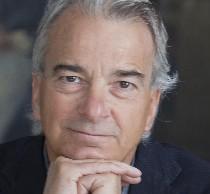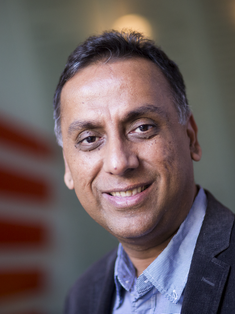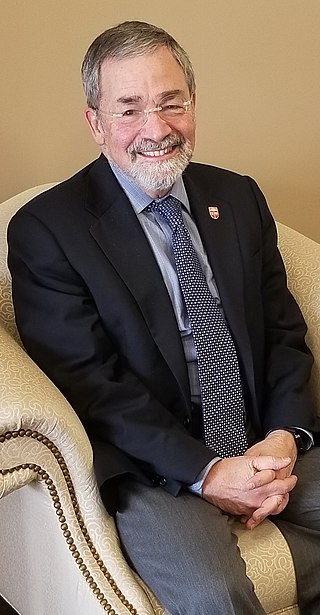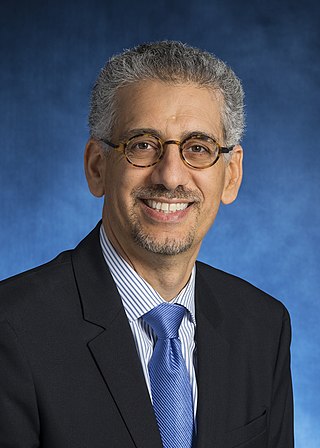
The Johns Hopkins Bloomberg School of Public Health is the public health graduate school of Johns Hopkins University, a private research university primarily based in Baltimore, Maryland.
The American Journal of Epidemiology (AJE) is a peer-reviewed journal for empirical research findings, opinion pieces, and methodological developments in the field of epidemiological research. The current editor-in-chief is Enrique Schisterman.
Maria Deloria Knoll is an expert in the fields of epidemiology, disease surveillance, vaccine trial conduct, and biostatistics. She currently serves as associate director of Science at the International Vaccine Access Center (IVAC), an organization dedicated to accelerating global access to life-saving vaccines, at the Johns Hopkins Bloomberg School of Public Health in Baltimore, Maryland.

George Wills Comstock was a public health physician, epidemiologist, and educator. He was known for significant contributions to public health, specifically in the fields of micronutrient deficiencies, tuberculosis, and cardiovascular disease. He served as the editor-in-chief for the American Journal of Epidemiology.

Alfredo Morabia is a Swiss-American physician, epidemiologist, and historian of medicine. He is currently professor of epidemiology at the Barry Commoner Center for Health and the Environment at Queens College, City University of New York in addition to serving as professor of Clinical Epidemiology at the Department of Epidemiology at the Mailman School of Public Health, Columbia University.
Epidemiologic Reviews is an annual peer-reviewed scientific journal covering epidemiology and published by Oxford University Press on behalf of the Johns Hopkins Bloomberg School of Public Health. The Journal was established in 1979 by Neal Nathanson and Philip E. Sartwell. The longest running editor-in-chief was Haroutune Armenian. The current editor-in-chief is David Celentano of the Johns Hopkins Bloomberg School of Public Health.
Sanjay Shete is a professor in statistical genetic, genetic epidemiology, behavioral genetics and biostatistics at The University of Texas MD Anderson Cancer Center. He is Barnhart Family Distinguished Professor in Targeted Therapies and section chief of behavioral and social statistics in the division of Quantitative Sciences.
Paul Kieran Whelton is an Irish-born American physician and scientist who has contributed to the fields of hypertension and kidney disease epidemiology. He also mentored several public health leaders including the deans of the schools of public health at Johns Hopkins and Columbia. He currently serves as the Show Chwan Health Care System Endowed Chair in Global Public Health and a Clinical Professor in the Department of Epidemiology at the Tulane University School of Public Health and Tropical Medicine. He is the founding director of the Welch Center for Prevention, Epidemiology, and Clinical Research at Johns Hopkins University.
Abraham Morris Lilienfeld was an American epidemiologist and professor at the Johns Hopkins School of Hygiene and Public Health. He is known for his work in expanding epidemiology to focus on chronic diseases as well as infectious ones.

Nilanjan Chatterjee is a Bloomberg Distinguished Professor of Biostatistics and Genetic Epidemiology at Johns Hopkins University, with appointments in the Department of Biostatistics in the Bloomberg School of Public Health and in the Department of Oncology in the Sidney Kimmel Comprehensive Cancer Center in the Johns Hopkins School of Medicine. He was formerly the chief of the Biostatistics Branch of the National Cancer Institute's Division of Cancer Epidemiology and Genetics.
Leon Gordis was an American epidemiologist, professor and author, whose textbook Epidemiology provided a foundation for the understanding of epidemiologic principles and clinical applications.

Haroutune Armenian, is a Lebanese born Armenian-American academic, physician, doctor of public health (1974), Professor, President of the American University of Armenia, President Emeritus, American University of Armenia. Professor in Residence, UCLA, Fielding School of Public Health.
Simin Liu is an American physician-scientist and epidemiologist. He is recognized internationally for his leadership in the research of nutrition, genetics, epidemiology, and the environmental and biological determinants of complex diseases, particularly those related to cardiometabolic health in diverse populations. His research has pioneered novel concepts, uncovered critical mechanisms and risk factors, and developed research frameworks for diabetes and cardiovascular diseases. A hallmark of Liu's work is when his lab was among the first to define and quantify dietary glycemic load in humans, providing key insights into the functional role of dietary carbohydrates in the development of health outcomes. This novel nutritional concept has since become a cornerstone of clinical diabetes management, nutritional epidemiology, and dietary feeding trials in diverse populations worldwide.
Walter Werner Holland was an epidemiologist and public health physician.

Cesar G. Victora is a Brazilian-born epidemiologist, academic and specialist in child health and nutrition. He is an Emeritus Professor of Epidemiology at the Federal University of Pelotas and holds or has held honorary appointments at the Universities of Harvard, Oxford, and Johns Hopkins, and at the London School of Hygiene and Tropical Medicine.

Brian L. Strom is the inaugural Chancellor of Rutgers Biomedical and Health Sciences and the Executive Vice President for Health Affairs at Rutgers University. Strom was the Executive Vice Dean for Institutional Affairs, Founding Chair of the Department of Biostatistics and Epidemiology, Founding Director of the Center for Clinical Epidemiology and Biostatistics, and Founding Director of the Graduate Program in Epidemiology and Biostatistics, at the Perelman School of Medicine of the University of Pennsylvania. In addition to writing more than 650 papers and 15 books, he has been principal investigator for more than 275 grants. He was honored as one of the Best Doctors in America for each of his last eight years at Penn.
Cheryl Ann Marie Anderson is an American epidemiologist. Anderson is a professor at and founding Dean of the University of California San Diego Herbert Wertheim School of Public Health and Human Longevity Science. Anderson's research focus is on nutrition and chronic disease prevention in under-served human populations.
Curtis Lynea Meinert was an American clinical trialist. He was a professor of epidemiology and biostatistics at Johns Hopkins Bloomberg School of Public Health.

Josef Coresh is an American epidemiologist. He is the Terry and Mel Karmazin Professor of Population Health, a Professor in the Department of Medicine, and the Founding Director of the Optimal Aging Institute at NYU Langone Health. He was previously the inaugural George W. Comstock Professor in the Department of Epidemiology at Johns Hopkins University, and the director of both the Cardiovascular Epidemiology Training Program and the George W. Comstock Center for Public Health Research and Prevention at Johns Hopkins School of Medicine.
Stephen Gange is an American statistician, epidemiologist, and academic administrator of Johns Hopkins University. He is a professor of epidemiology at the Johns Hopkins Bloomberg School of Public Health and has a joint appointment in the Johns Hopkins School of Medicine.








